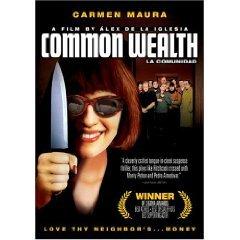“The butler was half-stewed, glued and tattooed.”
The VHS tape, Carry On The Prisoner of Splenda contains three made-for-television programmes featuring the Carry On team. These three Carry On programmes aired on British television in January 1975
In The Prisoner of Splenda–a spoof of Anthony Hope’s novel, The Prisoner of Zenda–Arnold and Vera Basket (Sid James & Barbara Windsor) travel to Pluritania on their honeymoon. Meanwhile the Crown Prince of Pluritania (also Sid James) has been kidnapped by the evil Duke Boris (David Lodge) and is imprisoned in a dungeon. Count Yerkackers (Peter Butterworth) and his aide Colonel Yackoff (Jack Douglas) try to enlist the help of Arnold Basket in impersonating the Crown Prince
The Nine Old Cobblers is a spoof of Dorothy Sayers’ novel The Nine Tailors. After a murder occurs in a small village, Lord Peter Flimsy (Jack Douglas) receives a mysterious telegram containing the code word “knickers.” Taking along his faithful-and far more intelligent butler, Punter, Lord Flimsy sets out to solve the crime. Joan Sims plays Amelia Forbus, Flimsy’s drum-bashing friend–with great aplomb, and Barbara Windsor plays Maisie, the owner of the local pub.
Lord Peter Flimsy and Punter appear again in the third and final episode: The Case of the Coughing Parrot. When a corpse is found inside the sarcophagus of King Ramitupum, they are called into investigate. Dr. Janis Crunbitt (Joan Sims) is in charge of the sarcophagus which was intended to be part of the Wapping Collection.
Of the three episodes, Carry on Prisoner of Splenda is the weakest and this affects the overall rating for the VHS tape. However, the two other episodes–both parodies of Dorothy Sayers/Lord Peter Wimsey–are very clever and funny. Carry On’s Lord Flimsy is obviously as thick as a brick–while poor under-appreciated Punter does all the work of crime solving. These two episodes contain much stronger supporting roles for the rest of the cast. This is great nostalgic fun for Carry On fans.




You must be logged in to post a comment.